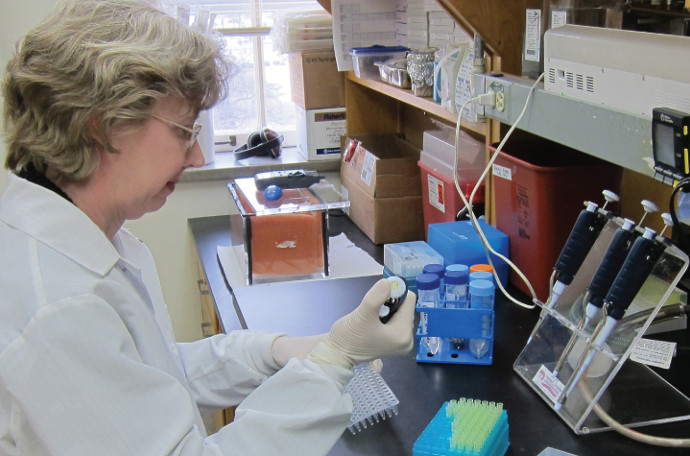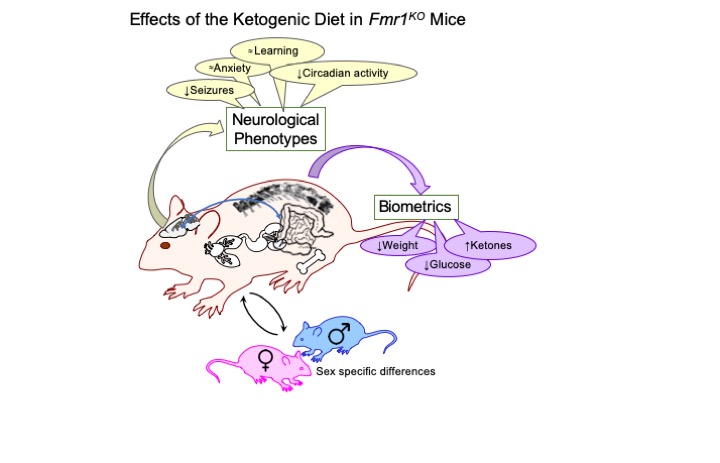
With a $122,000 grant from FRAXA Research Foundation from 2016-2018, Dr. Cara Westmark at the University of Wisconsin-Madison launched a study of sleep disorders in Fragile X syndrome. “During the course of our FRAXA-funded work, we serendipitously discovered rodent diet affects seizure propensity in the Fragile X mice, which has opened a whole new area of investigation for the laboratory,” reported Dr. Westmark.
Ketogenic Diet Reduces Hyperactivity and Sleep-Wake Cycle Problems in Male Mice
Dr. Westmark and her team have discovered remarkable effects of the ketogenic diet in the FMR1 knockout mouse model. First they found that the ketogenic diet reduces seizures in male Fragile X mice, but not in females.
They also found that the diet reduces sleep-wake cycle abnormalities in the male mice. Hyperactivity in the Fragile X mice is also sex-specific: only males are hyperactive. This occurs specifically during the beginning of the light cycle. Since mice are nocturnal, this timing coincides with bedtime for humans. Sleep problems, notably trouble falling asleep and frequent nighttime awakenings, are a huge issue for many children with Fragile X.
These were unexpected results, as they have tested thousands of mice over the past decade, in response to dozens of genetic, pharmaceutical and dietary interventions, and this is the first time they have seen strong sex-specific effects. Their findings dovetail nicely with recent findings from Leboucher et al, 2019 showing that FMRP deficiency shifts metabolism toward enhanced utilization of lipids as energy substrates.
The Westmark laboratory is currently testing neurological phenotypes in the Fragile X mice in conjunction with metabolic biomarkers. Ongoing work includes study of the ketogenic diet’s effect on REM and NREM sleep in fragile X mice.
This research is important because drugs that target insulin signaling, such as metformin, are prescribed off-label for Fragile X. However, little is known regarding the effect of diet on Fragile X phenotypes in mice or humans. The hope is that these studies will enable future Fragile X clinical trials to evaluate sleep as an outcome measure in human patients.
Her team has published their results in Neurochemistry International in March 2020.


